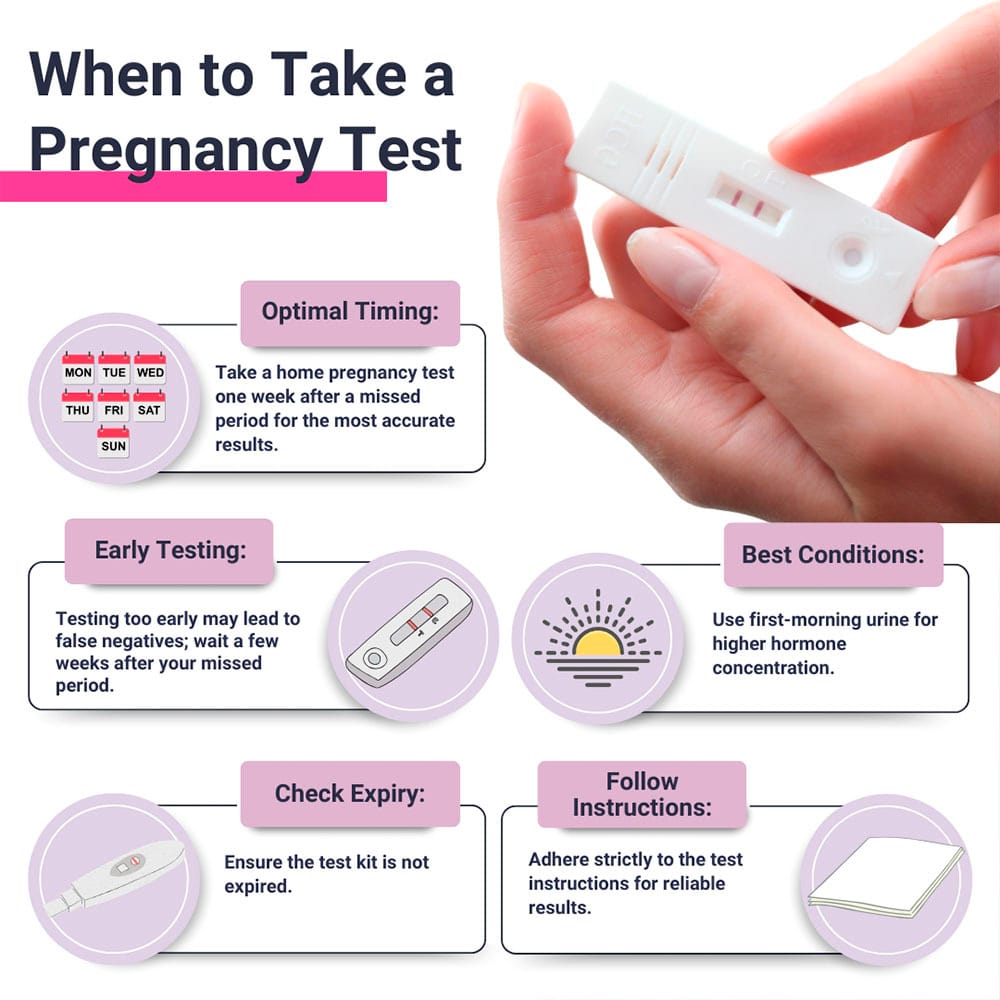Why Do I Need Pregnancy Testing and Planning?
Pregnancy is a life-changing event. Planning for a pregnancy involves making sure you get the care you need to stay healthy and to keep your baby healthy. Once you discover you’re carrying a child, you can plan for the entire period of your pregnancy, up to and including the birth.
A pregnancy test uses your urine or blood to determine if a hormone called human chorionic gonadotropin (hCG) is present. The hCG hormone signals that a fertilized egg has attached to your uterine lining. The amount of hCG in your blood and urine surges abruptly during the first 12 weeks of pregnancy before dropping down to lower levels for the remaining time.
To get first-class gynecological and prenatal care in Midtown NYC, visit Cohen Medical Practice (CMP). Whether you want fertility services or an annual gynecological exam, you can trust Dr. Felix Cohen and his team at CMP.

What Types of Pregnancy Tests Are Available?
You can find many pregnancy test kits available in the market that test for hCG. Use the test about one to two weeks after your first missed period.
Types of pregnancy tests include:
- Home pregnancy test. These over-the-counter, cost-effective tests are urine-based. These kits are generally the first step for many women. They work by detecting hCG in your urine and displaying a line, symbol or digital message if positive. For accurate results, follow the instructions for the test. Home pregnancy tests are more than 99 percent accurate.
- Blood pregnancy test. This type of test is doctor-prescribed and -administered as part of a pregnancy evaluation. Your New York obstetrician takes a blood sample from a vein in your arm. Blood pregnancy tests are precise and can verify early pregnancy or identify certain medical conditions, such as an ectopic pregnancy.
There are two types of tests:
- A qualitative hCG blood pregnancy test confirms your pregnancy by detecting the presence of hCG.
- A quantitative hCG blood pregnancy test measures the level of hCG in your blood to give you and your doctor an indication of how your pregnancy is proceeding.
- Prescribed urine pregnancy test. Your NYC gynecologist carries out this test in the office after collecting your urine sample. The lab examines your urine for hCG, but often, a home pregnancy test is just as reliable.
The test you should take depends on your situation and circumstances. While a home pregnancy test is easy to use, if you’ve had past pregnancy issues, such as a miscarriage or fertility issues, it’s recommended that you visit the compassionate team at Cohen Medical Practice (CMP) in Midtown Manhattan.
When Should I Take a Pregnancy Test?
The best time for a home pregnancy test is a week or two after a missed period. Pregnancy testing using your urine only takes a few minutes.
To be sure your results are accurate, consider:
- Timing. Taking a pregnancy test too early can lead to false negative result. Wait several weeks after your missed period to be sure.
- Expired tests. Check the expiration date on the test kit before using.
- Urine concentration. Hormone levels are high in concentrated urine. The best time to take a test is in the morning.
- Medications. Fertility treatments and some medications, such as antihistamines, may affect the outcome of your test.
- Procedure. Follow the instructions carefully to get accurate results.
For confirmation that you’re pregnant, make an appointment with your doctor at CMP New York as soon as possible. Ask for a blood pregnancy test, which are more accurate. Once you know you’re pregnant, you can start planning for the months ahead.
Why Is Pregnancy Planning Important?
A well-planned pregnancy ensures the best possible results for both you and your baby. A comprehensive plan prepares you physically, mentally and emotionally, so you know what to expect. Your plan, developed with your doctor, reduces potential health risks and increases the chances of a healthy pregnancy and birth.
The key elements include:
- A healthy diet. A well-balanced diet — rich in fruits, vegetables, whole grains and lean proteins — supports your reproductive health.
- Essential nutrients. An adequate amount of folic acid, iron, calcium and other nutrients supports fetal development while reducing the risk of birth defects.
- Physical activity. Regular, moderate physical activity improves your health and overall well-being, which positively influence your pregnancy.
- Managing chronic conditions. For health conditions like diabetes, high blood pressure, chronic pelvic pain or a sexually transmitted disease, get proper care to control the condition before you become pregnant or shortly afterward.
- Avoiding harmful habits. Don’t smoke, abuse alcohol or take recreational drugs at any stage during your pregnancy to avoid complications.
- Genetic testing. If your family is prone to pregnancy complications, consider a genetic screening to rule out those factors.
If you’re concerned about pregnancy-related issues, such as vaginitis or a urinary tract infection (UTI), Dr. Cohen and his team of skilled diagnosticians provide an exceptional quality of care. CMP provides modern pregnancy planning and testing that fit your needs. For expert feminine health and gynecological surgery care, when needed, contact Cohen Medical Practice (CMP) in NYC today.

